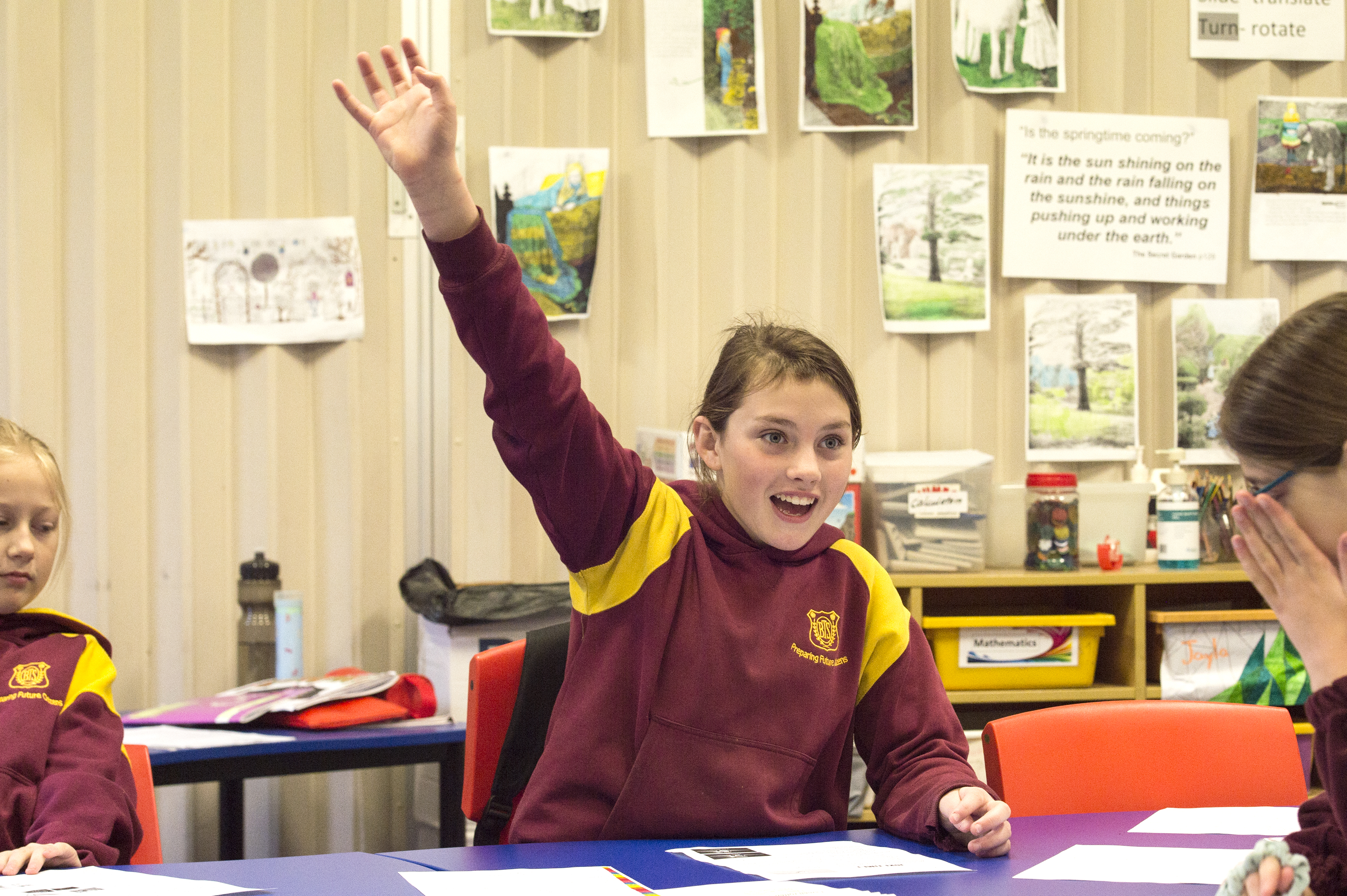Overview
Alignment with Be You Domains
-
Mentally Healthy Communities
-
Learning Resilience
-
Early Support
Alignment with Australian Curriculum
- Health and PE
- Humanities and Social Sciences
Target audience
- Primary school
- Secondary school
Target groups
- Whole class
Aims
Big Talks for Little People aims to: • encourage students to develop an awareness of the importance of mental health literacy • support with early intervention for students who may have experienced trauma or mental health and wellbeing issues, including school bullying. • align the content of the 6 lessons with key social and emotional learning principles • provide teachers with key resources focused on issues such as trauma-informed teaching, child anxiety, teacher wellbeing.Program theory
Big Talks for Little People is underpinned by systems theory, which is based on the principle that the parts of a system (in this instance, a child’s mental health) need to be viewed within the context of its relationships with other systems (family, school and the broader community) rather than in isolation. It provides a holistic perspective of complex programs and interventions.Topics
The module covers various topics, including social and emotional learning principles, student and teacher wellbeing, trauma-informed teaching, child anxiety, peer relationships and bullying. The program's content is linked to the Australian Curriculum and general capabilities.Cost
Program structure
There are specific modules designed for primary school and OSHC settings. Each contains 6 sessions with downloadable individual lesson plans, fact sheets, animations and links to an online questionnaire for students. Each module is designed as a standalone resource that can be delivered by a school or organisation. Teachers can deliver the intervention aspect of the program in a 40–45-minute lesson.Instructor
- External facilitator
Instructor training
To deliver one of the modules, educators must complete an online 20-minute professional development session.Supporting resources or materials available with program
- Other (please specify)
Other materials
Each session includes 30-second animations using cartoon-like characters depicting scenarios such as making friends or bullying. These are intended to be shown in class to promote discussion. The characters were developed in consultation with teachers and wellbeing counsellors.Ongoing support
An administrative assistant is available to provide support for instructors.Parent involvement
- Written information provided to parents
Origin of program
Australia
Flinders University
Program authors
Phillip T. Slee
- GPO Box 2100 Adelaide 5001,Bedford park SA 5001 Australia
Ratings
Summary of evidence factors
This is a summary of the evaluation or research study characteristics that contribute to the program’s evidence rating.
|
Positive impact on at least one outcome for children and/or young people?
The study reported positive outcomes. |
Yes |
|---|---|
|
Link between program description and theory of change
Theory of change refers to whether there was a comprehensive description and illustration of how and why a desired change is expected to happen in a particular context. |
Some links |
|
Study design
Type of study design reported. |
Pre-post cohort |
|
Independence
The degree to which the program authors were involved in the research. |
Completely |
Summary of implementation factors
This is a summary of the program’s characteristics that contribute to its implementation rating.
|
Feedback sought from participants
Participants enjoyed the program and understood its benefits. |
Yes |
|---|---|
|
Feedback sought from instructors
Instructors enjoyed the program and understood its benefits. |
Yes |
|
Groups program is not suitable for
Groups the program wouldn't be suitable for or that required further research to determine suitability. |
|
|
Training provided during study
The model of training provided. |
Web based |
|
Ongoing instructor support provided during study
Whether ongoing support is provided. |
Yes |
Context
This is a summary of the context in which the evidence for the program was established.
|
Study Participants
Pre school, primary school (Foundation to Year 6), secondary school (Years 7 to 12). |
Primary school Secondary school |
|---|---|
|
Country of Study/s
The location in which the evidence or research was conducted. |
Australia |
|
Location of Study/s in Australia
The state (or states) the program was assessed in Australia. |
SA |
|
Evaluation of program in culturally and linguistically diverse populations
Provider has included culturally and linguistically diverse people when assessing the program. |
No |
|
Evaluation of program in Aboriginal and Torres Strait Islander children and young people
Provider has included Aboriginal and Torres Strait Islander peoples when assessing the program. |
No |
|
Evaluation of program in low socioeconomic groups
Program has evaluated a diverse socio-economic population in their research. |
No |
|
Developmental based adaptations to program design and delivery
Shorter sessions for younger students or activities are adjusted for age appropriateness. |
No |
|
Evaluation of program in children and young people with disability and/or learning difference
Provider has included participants with a disability or learning difference when assessing the program. |
Yes |
Last updated: 28 August 2023
